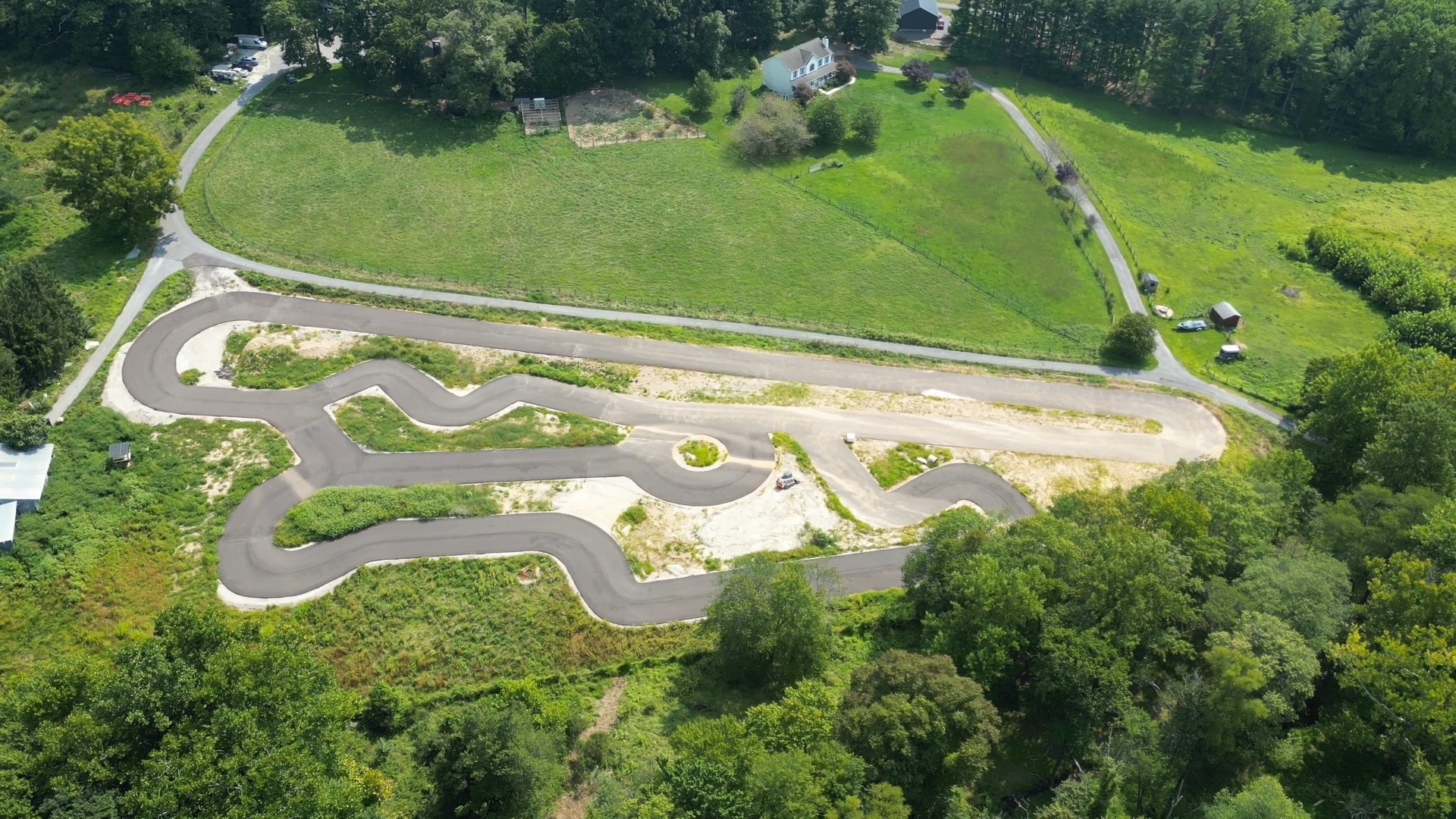

We’ve seen it time and time again: newly constructed suburbs encroach on the grounds of a racetrack, leading to noise complaints and the inevitable closure of a community staple and local business. A dispute unfolding in Maryland, however, has flipped this situation on its head. Here, a private backyard karting track is the new arrival, and the rural neighborhood in which it sits is petitioning to shut it down and have it destroyed before any wheels touch the freshly laid asphalt.
The hubbub concerns a roughly 0.4-mile karting track built in Highland, Maryland, an unincorporated rural community near the middle of the state. According to the source who sent in a tip, it was built on an unused field by the property owner whose son competes in karting with the goal of becoming a pro racing driver. Obviously, a backyard track makes practice convenient and allows more crucial seat time for skill development.
A touching setup. But its construction has sparked a fight between neighbors that’s been unfolding in local community meetings and Facebook groups. On one hand, the guy didn’t follow the permit process. On the other, the objections being lobbed by his neighbors go far beyond that, with some claiming that allowing the track to stay is the end of the rule of law in Howard County. There’s even a Change.org petition to… someone.

Though the track’s owner was named to us by the tipster, and we found what we believe to be their social media profiles, our request to hear their side of the story was not answered at the time of publication. Some of the story is revealed in the minutes from a July 30 community meeting though, where the owner was represented by an attorney and a civil engineer (who presumably designed the track) who spoke on their behalf after neighbors successfully lobbied the county to hit him with a stop-work order.
According to the transcript, the owner purchased the property in 2016 and has spent at least $100,000 to have the track built. Now aware of how unpopular it is with locals, he applied for a conditional use permit that’d certify the track only for private, non-competitive use. It would allegedly be driven only by the owner’s son and two of their friends, using only electric karts within designated operating hours. Should the track not pass further review, though, it will have to be demolished.





Neighbors remain concerned, however, that the track wouldn’t be used as claimed, and that the enforcement would be left to them. Some allege they’ve also heard talk of a helipad being installed if the karting track is allowed to proceed. They also claim there are problems with the circuit’s design, which is said to have filled in protected wetlands and runs close to property lines. Additionally, the track supposedly runs within 25 feet of said wetlands, which would pose an obvious safety and environmental risk in the event of a major four-off in an electric kart.
It’s difficult to separate some of the opposition’s claims from exaggerated paranoia, such as fears of increased nearby road traffic and speeding through neighborhoods. At the same time, some of their concerns are legitimate, coming from residents of a quiet community that existed long before the track did. And after all, this was all done without permits, so you can’t make the case that the owner didn’t do anything wrong.
We’ll see what happens. In the meantime, a slightly more balanced perspective can be found on a countywide Facebook group where locals who don’t live in Highland are weighing in. There, people are split pretty evenly: some share the concerns about the environment and the track generally becoming a nuisance. Others question what larger harm is really being done by giving a kid a private space to drive fast without any danger to the public. What do you think?

Got a tip or question for the author? You can reach them here: james@thedrive.com